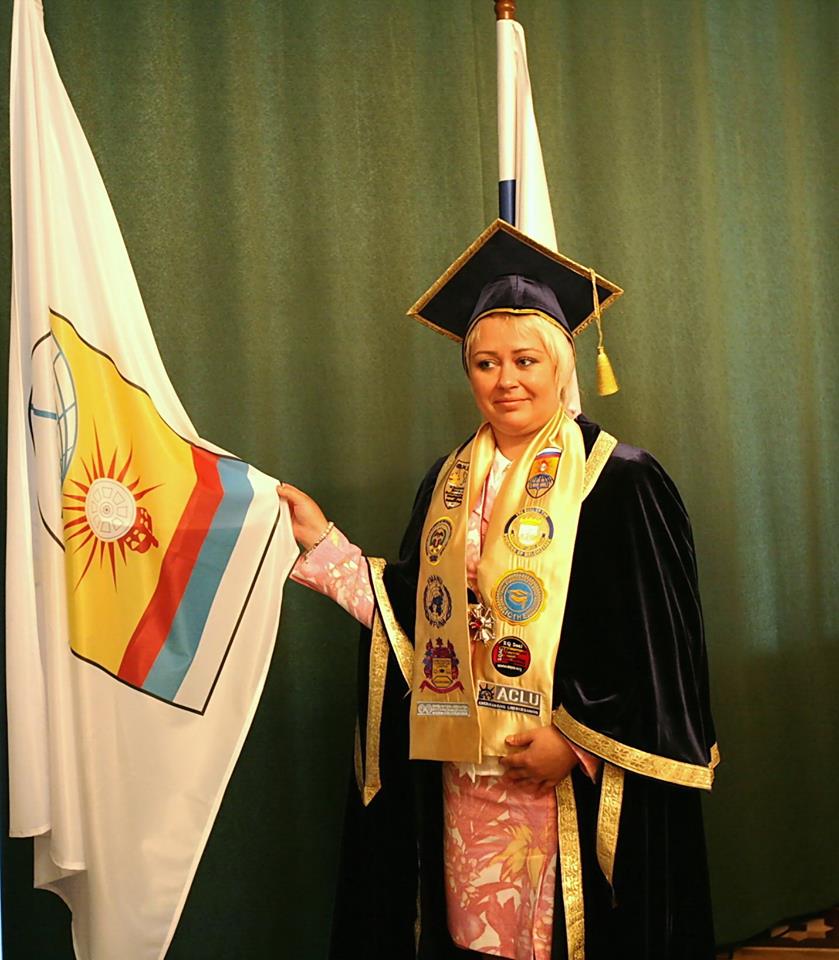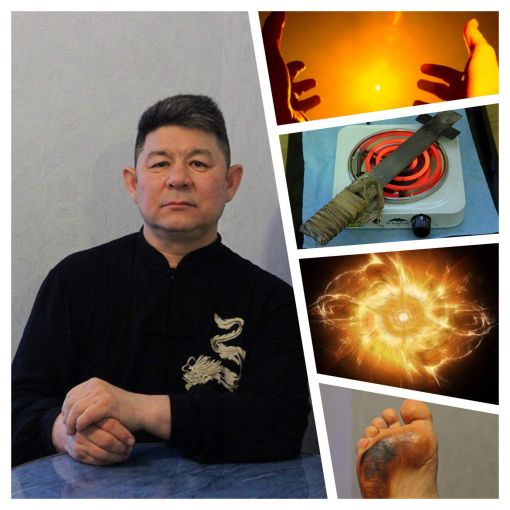TOLERANCE AS THE BASIS OF SCIENTIFIC DOCTRINE OF INTERNATIONAL UNIVERSITY OF FUNDAMENTAL STUDIES (IUFS)
O.N. Sorokin[1], D.N. Sorokina2, O.I. Shemyakin3, Mahatma Shanti J.P.K.4
In this article, the authors reveal the natural base of tolerance as a basic biological function of an intelligent biological living system (IBLS) and, through the law of succession of functional connections declare about tolerance in the entire palette of life of the International University of Fundamental Studies, as a derivative living system (DLS) from individuals representing him.
Oxford Latin Dictionary gives a very precise and detailed translation of the Latin word “tolerance”: «Tolerantia. Ability to bear pain or adversity, patience, fortitude.” [1].
Patience has natural roots and science-based tendency of development: from an individual – the level of life, formed by biological processes through individuality (an individual) – the level of life, formed by the physiological and psychological processes, to the personality – the level of life, formed by a complex mental processes.
Patience – is a natural feature of a human psyche.
Tolerance – is a functional manifestation of a man as conscious need, formed by mental activity, which is based on the generic, specific and cultural values.
Tolerance (patience, as the flip side of endurance) is one of the most important elements of the functional characteristics of biological living systems (BLS), including the intelligent biological system (IBLS). From the point of view of psychology, tolerance can be considered as an inherent property of Soul.
Soul – is a non-trivial and super-complex system, like any system undergoes changes of state of various functions. Hence, tolerance as a basic function has a hierarchy of development states, which is directly proportional to the development state of the very system «a man».
The man – a system of attachment of the functional hierarchy, a set of nesting dolls. Soul – a functional psychological matrix, which carries all the information about the processes of the BLS (an organism) and on-line storage of entire spectrum of vital activity of the IBLS (psyche).
Hence, from the point of view of functional psychology, tolerance is manifested at all levels of functional development of the IBLS: a person, an individual, a personality and a spiritual personality.
In biology and physiology it is generally assumed that a specimen and an individual –the same thing, means – the whole. But talking about the differences of these concepts was made possible only when «individual» has ceased to be «subjective» in a science with negative connotation, as something insignificant, primitive with respect to, for example, public scientific opinion.
From the point of view of philosophy in general and philosophy of psychophysical holism in particular, the concepts of a specimen and an individual are separated to different semantic hierarchies by the most natural science [3].
- A specimen- a category of biological functional unity, is limited by developed threshold system of excitation and inhibition, issued by protective mechanisms of CNS and determined by susceptibility and endurance of the system [2].
The semantic matrix of an individual, – acquisition of sensations experience, the formation of mechanism of recognition of stimuli in the vital activity of a biological system, which ultimately will bound and determine the endurance of the system. We can say that a biological specimen is trained to feel, recognize and classify.
It is endurance that is biological patience. A specimen accumulates operational experience of cognition of functional activity of own interoworld, as a whole mechanism, as a whole system, where a new level of sensation – perception (perception) dominates, which is expressed in a gradient of excitation and gradient of inhibition.
A gradient – the range of functional expertise that forms the characteristics of a given specimen. The quantity and quality of functional experience and regained functional skill set this individual from other specimens, i.e. makes it an individual.
- An individual – a category of unity of functional differences that are formed by on-line storage of sensitivity, operational skills and are limited by operational experience, which determines the individual gradients of reception, perception and reflection. [2] Semantic load of the individual is not experience of sensations, but lifelength of sensory skills, sensory experience and sensory memory, which does not decrease sensations experience of the specimen, but moves perception on a more sensitive level of generality, and hence with a richer palette of worldview. It’s just a information jump, could say, the phase transition of quality: perception, status, relationships, that is the complication of the system, inevitably leading to the change (enrichment) of the functional manifestations of the system and the range of its vital activity in the inter-and exteroworld.
Security of BLS is provided by self-preservation instincts, which are actively involved in the formation of the core, underlying sense – a sense of limit. The limit is involved in the formation of the sensitivity threshold and patience threshold together with the operational functions of sensations memory and response experience. They determine the gradient of sensitivity and the gradient of patience of IBLS that is expressed as active tolerance.
The system of the individual begins to use its differences as extra opportunities to generate variability (multiple choices) of functional activities.
The quantity of functional differences increases the quantity of functional inter- relationships of intero- and exteroworld of the system and changes the quality of the display system. It becomes more flexible and active. The presence of an increasing factor of individual differences moves endurance of the system to a level of active tolerance.
- Personality – the category of holistic, functional manifestations of a targeted, semantic vector of psychodynamics; the category of deliberated socialization. [2] The personality acts on the basis of a conscious specific identity and on the basis of personal opportunities that are determined by individual differences and, above all, the experience and skill of sensual expression. The semantic load of the personality: the formation of the personal «I – Conception» followed by self-actualization.
Self-actualization is not possible without interaction. Every interaction is an impact of systems on each other. It is here where is an effect of tolerance (passive patience). A personality includes an analytical apparatus of a sensitive apparatus and receives information of a phenomenon with all the functional palette available to it.
The man defines: dangerous – not dangerous (a specimen), do like – do not like (an individual), appropriate – not appropriate (a personality). But always in the context of a personal «I – conception».
Passive tolerance allows to determine the position and limit of the normal functioning of the system, as well as to form a state interoworld system and the attitude of the system to exteroworld as a source of irritation and excitation of the system.
- At the level of the spiritual personality tolerance has a status of an ideal function that provides a high-conscious living system with: an unwavering integrity, conscious acceptance of the world and constructive, creative functionality.
In this, perhaps, the semantic field of self-knowledge (SFS ) of a human in cognition of the Semantic Space of Existence (SSE) can be determined.
Conclusion.
If we carefully examine the system of tolerance of a specimen, individual, personality and spiritual personality (its potenciality), we see that tolerance is associated with the mental state of the system. We can say that tolerance is a functional projection of psychology of the system condition, its spiritual essence.
All psychic processes and manifestations of mental functions derive entirely from the physiological processes of living biological systems and intelligent living biological systems. Complex mental functions, as derived from the mental functions, arise and manifest themselves through actualization of the influence of the environment. There is a continuity of development processes and complexity of psychic activity.
Thus, tolerance is the most important aspect of life activity IBLS and DLS.
Literature:
- Oxford Latin Dictionary / P. G. W. Glare. Oxford. 1968. P. 1946.
- Sorokina D.N., Sorokin O.N. «An individual as a procedural integrity» p.61 – 64. The journal «Vestnik» № 10 (40) Special edition of SRI of astrobiological issues and space security, 2009.
- Streletskaya I.V., Samoylov M.V. «Philosophy and psychology of tolerance of BLS and IBLS or matrix of evolution of functional hierarchy of tolerance» – Collection «The problems of research of the Universe». Edition 34. Ed. Klyushina Y.G. – St. Petersburg: Shareholder and Co, 2013. – 332 p. of the International Congress «Fundamental problems of natural science and technics», Book 3.
[1] Grand-Doctor of Philosophy, Doctor of Psychology of the Oxford Educational System, full professor, the chief of department of functional psychology at IUFS
2 Doctor of Philosophy in Clinical Psychology Oxford Educational System at IUFS
3 Doctor of Philosophy in Clinical Psychology Oxford Educational System at IUFS
4 Grand-Doctor of Philosophy, Doctor of Psychology Oxford Educational System, academic, full professor, rector of IUFS



